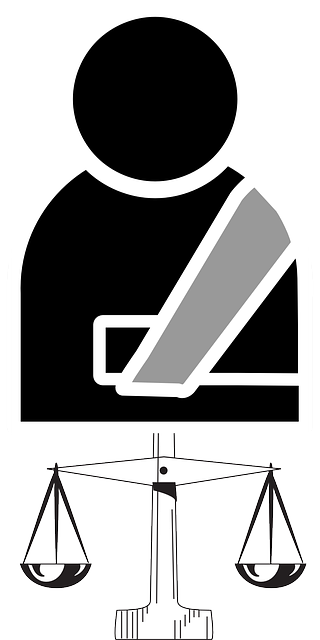Personal injury law protects individuals harmed by another party's actions through claims against drivers, property owners, and healthcare providers. It covers diverse scenarios like car accidents, medical malpractice, and workplace injuries, focusing on rights protection, compensation for physical/emotional suffering, accountability, and safety enhancement. Key claim types are negligence (failure to exercise reasonable care) and product liability (defective products). Legal processes involve investigation, evidence gathering, settlement negotiations or litigation, with lawyers acting as advocates. Choosing a specialized personal injury lawyer is crucial for successful navigation of legal proceedings based on expertise, credentials, experience, communication style, and dedication.
Personal injury law protects individuals harmed due to another’s negligence or intentional actions. This comprehensive guide explores key aspects of personal injury law, empowering you to understand your rights and options. From defining what falls under this legal framework to navigating the process of common claims, we demystify the system. Learn about the pivotal role lawyers play, how to choose the right one for your case, and gain insights into ensuring a favorable outcome. Discover your path to justice and compensation with this essential resource on personal injury law.
- Understanding Personal Injury Law: What It Covers and Who It Helps
- Common Types of Personal Injury Claims and Their Legal Process
- The Role of Lawyers in Personal Injury Cases: Your Rights and Options
- How to Choose the Right Personal Injury Lawyer for Your Case
Understanding Personal Injury Law: What It Covers and Who It Helps

Personal injury law is a crucial legal domain that encompasses a wide range of cases where an individual suffers harm due to another party’s negligence or intentional actions. It provides a legal framework to hold accountable those responsible for causing personal injuries and offers compensation to victims. This area of law covers various scenarios, including car accidents, slip and fall incidents, medical malpractice, workplace injuries, and more.
The primary purpose of personal injury law is to protect individuals’ rights and ensure they receive fair restitution for their physical, emotional, and financial suffering. It helps victims seek justice by enabling them to file claims against the at-fault parties, whether it’s a driver, a property owner, or a healthcare provider. Through this process, individuals can secure compensation for medical expenses, lost wages, pain and suffering, and other related damages, ultimately fostering accountability and promoting safety in various aspects of daily life.
Common Types of Personal Injury Claims and Their Legal Process

In the realm of personal injury law, several common types of claims emerge, each with its distinct legal process. One of the most prevalent is negligence, where individuals seek compensation for harm caused by another party’s failure to exercise reasonable care. This could involve car accidents, medical malpractice, or slip-and-fall incidents. The legal process begins with an investigation into the incident, gathering evidence such as police reports and medical records. If negligence is established, victims can pursue damages through settlement negotiations or litigation, aiming for compensation that covers medical expenses, pain and suffering, and lost wages.
Another significant category is product liability, focusing on injuries resulting from defective products. This may include faulty automotive parts, hazardous consumer goods, or pharmaceutical drugs with undisclosed side effects. The legal journey starts with identifying the responsible party and determining the scope of liability. Victims or their attorneys can file a claim, presenting evidence of the defect and its direct link to the harm suffered. Similar to negligence cases, resolution can be achieved through settlement agreements or, if negotiations fail, a trial may ensue to determine compensation for medical costs, rehabilitation expenses, and punitive damages when applicable.
The Role of Lawyers in Personal Injury Cases: Your Rights and Options

When navigating a personal injury case, understanding your rights and options is paramount. Lawyers play a crucial role in this process, serving as advocates for their clients’ well-being and legal interests. They possess an in-depth knowledge of personal injury law, enabling them to guide you through complex procedures and regulations. A skilled attorney will help you assess the validity of your claim, collect essential evidence, and communicate effectively with insurance companies or opposing parties.
In a personal injury case, lawyers provide invaluable support by ensuring your rights are protected. They can negotiate settlements, represent you in court if necessary, and offer strategic advice tailored to your specific situation. Their expertise allows them to assess the potential value of your claim and help you make informed decisions, ultimately aiming to secure the compensation you deserve for your injuries and related losses.
How to Choose the Right Personal Injury Lawyer for Your Case

Choosing the right personal injury lawyer is a crucial step in navigating complex legal proceedings. When considering a case, it’s essential to look for attorneys who specialize in personal injury law. This expertise ensures they stay updated with evolving laws and have in-depth knowledge of damages, liability, and compensation. Researching a lawyer’s credentials, experience, and track record in similar cases is vital.
Additionally, consider an attorney’s communication style and your comfort level. Effective lawyers should actively listen to your concerns, explain legal processes clearly, and keep you informed throughout the journey. Meet several lawyers, discuss your case, and gauge their interest and dedication before making a decision.
Personal injury law plays a vital role in compensating individuals for physical, emotional, and financial losses resulting from another party’s negligence or intentional actions. By understanding the scope of coverage and navigating the legal process effectively, those affected by accidents or harm can secure justice and achieve fair settlements. This article has provided an overview of personal injury claims, highlighting the importance of knowledgeable representation from a qualified lawyer. Choosing the right legal counsel is crucial, ensuring your rights are protected throughout the process.
